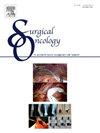复发性肾细胞癌的转移导向治疗-十年经验的回顾性分析
IF 2.4
4区 医学
Q3 ONCOLOGY
引用次数: 0
摘要
目前的指南对复发性肾细胞癌(RCC)患者的转移导向治疗(MDT)提供了微弱的推荐,并且侧重于症状控制和潜在的延迟全身治疗的目标。特别是考虑到转移性RCC的系统性治疗需要靶向治疗,MDT的作用仍然不明确。我们研究的目的是评估哪些患者可能从MDT中获益最多。我们的评估终点是开始全身治疗的时间和无进展生存期(PFS)。材料,方法回顾性收集本中心独有的数据;我们的研究纳入了最初部分或根治性肾切除术后复发性RCC的患者,这些患者随后在弗莱堡大学医院接受了MDT,其病例在我们2011年至2021年的跨学科泌尿生殖肿瘤委员会上进行了讨论。结果共纳入92例患者。中位随访57.6个月(IQR 30.9-89.6)。首次MDT时的中位年龄为65.1岁(IQR 59.05-72.36)。肺和淋巴结是最常见的复发部位(分别为40.2%和20.7%)。首次MDT后的中位PFS为392天(IQR 100-855)。开始全身治疗的中位时间为534天(IQR 142-1707)。在多变量回归分析中,初始病理t分期越高,PFS越短(HR 1.64, 95% ci 0.98-2.66;p = 0.05)。此外,年龄越大可降低MDT后进展的风险(HR 0.97, 95%CI 0.94-1.00;p = 0.04)。非参数log-rank检验显示,早期复发患者(初诊后1年内)开始全身治疗的时间明显缩短(p = 0.05)。然而,在多变量回归分析中,这种影响并不明显。结论:我们报告了在过去的十年里,在我们的机构接受了化疗治疗复发性RCC的大量患者。在回顾性单中心分析的限制下,我们的研究结果支持MDT治疗复发性疾病的概念,这些患者在初始肿瘤阶段表现良好,初始治疗后复发较晚。然而,由于mRCC是一种异质性很强的疾病,需要更多的研究来完善预测参数的定义,以促进以患者为中心的决策。本文章由计算机程序翻译,如有差异,请以英文原文为准。
Metastasis directed therapy in recurrent renal cell carcinoma – Retrospective analysis of a ten-year experience
Introduction
Current guidelines provide a weak recommendation for metastasis directed therapy (MDT) in patients with recurrent renal cell carcinoma (RCC) and is focused on the goal of symptom control and potentially delaying systemic therapy. Especially in light of systemic treatment entailing targeted therapies for metastatic RCC, MDT's role remains undefined. Goal of our study was to evaluate which patients might benefit most from MDT. Our assessed endpoints were time to initiation of systemic therapy and progression-free survival (PFS).
Material & methods
We collected data retrospectively and exclusively at our centre; our study included patients with recurrent RCC after initial partial or radical nephrectomy, who subsequently underwent MDT at the University Hospital Freiburg and whose cases were discussed at our interdisciplinary urogenital tumour board between 2011 and 2021.
Results
A total of 92 patients were included. Median follow up was 57.6 months (IQR 30.9–89.6). Median age was 65.1 (IQR 59.05–72.36) at the time of first MDT. Lung and lymph nodes were the most frequent locations of recurrence (40.2 % and 20.7 %, respectively). Median PFS after the first MDT was 392 days (IQR 100–855). Median time to the initiation of systemic therapy was 534 days (IQR 142–1707). In multivariate regression analysis, a higher T-stage in the initial pathology was associated with shorter PFS (HR 1.64, 95%-CI 0.98–2.66; p = 0.05). Furthermore, older age lowered the risk of progression after MDT (HR 0.97, 95%CI 0.94–1.00; p = 0.04). According to the non-parametrical log-rank test, patients with early recurrence (within 1 year after initial diagnosis) had significant shorter time to initiation of systemic therapy (p = 0.05). However, this effect was not apparent in multivariable regression analysis.
Conclusion
We report on a large cohort of patients who underwent MDT for recurrent RCC within the last ten years at our institution. Within the limitations of a retrospective single-centre analysis, our findings support the concept of MDT for recurrent disease in patients presenting a favourable initial tumour stage and rather late recurrence after initial therapy. However, as mRCC is a very heterogeneous disease, more investigation is needed to refine the definition of predictive parameters that facilitate patient-centred decision-making.
求助全文
通过发布文献求助,成功后即可免费获取论文全文。
去求助
来源期刊

Surgical Oncology-Oxford
医学-外科
CiteScore
4.50
自引率
0.00%
发文量
169
审稿时长
38 days
期刊介绍:
Surgical Oncology is a peer reviewed journal publishing review articles that contribute to the advancement of knowledge in surgical oncology and related fields of interest. Articles represent a spectrum of current technology in oncology research as well as those concerning clinical trials, surgical technique, methods of investigation and patient evaluation. Surgical Oncology publishes comprehensive Reviews that examine individual topics in considerable detail, in addition to editorials and commentaries which focus on selected papers. The journal also publishes special issues which explore topics of interest to surgical oncologists in great detail - outlining recent advancements and providing readers with the most up to date information.
 求助内容:
求助内容: 应助结果提醒方式:
应助结果提醒方式:


